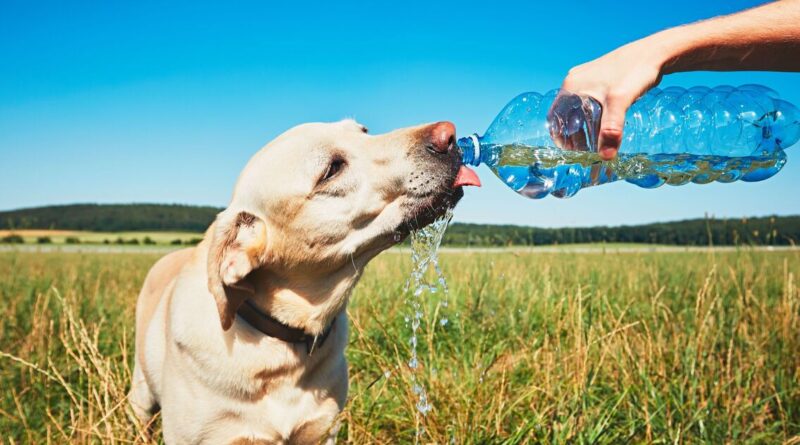Vet urges dog owners to look out for 1 thing during hot weather
The UK has been scorching in extreme heat for the last week and some parts of the country could experience the same high temperatures this weekend. With that in mind a leading vet has issued a warning to dog owners.
The vet warned that those who own dogs should watch out for dehydration before it turns deadly. Sadie Spencer, principal vet at Vets Now, said pets lose moisture far faster than people realise. “Dehydration can develop quickly in dogs, cats and other animals and, in severe cases, it can be life-threatening,” she explained.
She added: “Just like humans, in hot weather, pets need more water. Pets lose more moisture through panting and can overheat faster during warm spells.
“It’s even more important in warmer weather to make sure your pet has constant access to fresh, clean water, both indoors and outside.”
Dehydration occurs when an animal fails to take in enough water and electrolytes or loses too much fluid through panting or exercise.
Left untreated, it can damage organs and lead to collapse.
Spencer listed the warning signs owners should never ignore: a dry nose or sticky gums, sunken eyes, extreme tiredness or reluctance to move, general weakness, loss of appetite, skin that stays “tented” when gently pinched, and in the worst cases total collapse.
To check a dog quickly, she recommends the pinch test.
She said: “Use your thumb and forefinger to lift a small fold of skin on the back or the top of the head. If your pet is well hydrated, the skin should spring back as soon as you let go.
“As moisture is lost it moves back more slowly and, in severe cases, it doesn’t return at all.”
The test can be harder to read in very old, overweight or underweight dogs, or in breeds with heavy coats or loose skin, so owners should combine it with other symptoms.
Simple steps can help. Spencer urges owners to refresh bowls several times a day, add an ice cube for a cooling boost, set up extra water stations in the house and garden, and carry a bottle and collapsible bowl on every walk.
Dog-safe frozen treats offer extra fluid, but leaving a pet in a car or conservatory “even for a few minutes” is never safe.
Timing matters too. Pavements can burn paws and raise body temperature fastest between 11am and 3pm.
“If it’s too hot to hold your hand on the ground for five seconds, it’s too hot for your dog,” Spencer warned.
Early outings before 9am or short strolls after 6pm, preferably on shaded routes, are safest.
Owners who spot any signs of dehydration or heatstroke are advised to contact their vet or the nearest emergency clinic immediately.





